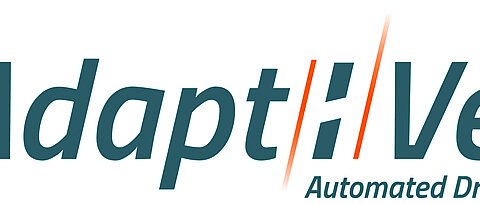The SafeRoBAY project, which is being carried out together with Siemens, TÜV NORD, Franka Emika, TUM, the Fraunhofer Institute for Cognitive Systems and the Klinikum rechts der Isar of TUM, aims to easily implement and validate biomechanically safe and efficient human-robot collaboration (HRC) in practice.
moreProjects of the Forschungsstelle RobotRecht
Since the Forschungsstelle was established, it has accompanied numerous national and international projects. Below is a selection of the various projects and our project partners:
Current Projects
TargetJura
03/16/2021Having a discussion with an artificial intelligence (AI) about ethical issues: is that possible? In our legal-informatics cooperation project TargetJura, we are addressing this question and would like to enter into dialogue with an AI.
moreBefore long, Artificial Intelligence (AI) will be vastly embedded in everyday life. The main proposition of this project - funded by the Volkswagenstiftung - is that AI-robots should have multiple interaction styles depending on context. Robots should behave differently when interacting with humans than with one another.
moreBig data is no longer just a fashionable buzzword, but an established business practice. Various new business
practices have been developed in recent years to open up data sources. For example, "web scraping" is the
name for a technological procedure that is used to automatically harvest content from websites on the Internet.
morePAcT
07/25/2018The PAcT project (Proving Accountability in Traffic), which is being carried out together with two partners from
the Technical University of Munich, examines the extent to which legal norms can be formalized in such a way
that they can be directly converted into computer software.
moreESF MA-Netze DiReKT
06/26/2018In this EU-funded project, the aim is to address the topic of "digitisation and law", taking close account of practical
commercial needs so that legal barriers to the innovative use of digitisation can be identified, examined and, as
far as possible, removed.
moreDigitisation of Agriculture
06/26/2018The project Digitisation of Agriculture of the Office of Technology Assessment at the German Bundestag (TAB),
dealt with issues related to the networking of digital technologies along the agricultural value chain.
more
ODiL
05/14/2018The BMBF-funded project ODiL (Open software platform for service innovation in the value creation process in agriculture), was responding to the increasing digitisation trend in agriculture and set itself the target during its three-year project period (2016-2019) of developing an open platform for integrated, scalable, networked and secure representation, communication and processing of data and services in the environment of independently held private farms.
moreLegal foundations of human-robot interaction
05/14/2018In the course of the digitalization of the working world, companies have been increasingly faced with new challenges. The interaction between man and machine is therefore not just highly topical, but also many sided and legally complex. Not only are data protection questions currently highly relevant, but civil liability issues and criminal law consequences are also becoming increasingly important: Who is liable in the event that an accident is caused by a robot? Can the manufacturer himself incur criminal liability? And how can existing legal concepts for liability be reconciled with the safety of staff at their workplaces? The current state of technology is undoubtedly raising such questions. Thought also has to be given to what the effects of future progress, such as the further development of artificial intelligence, will be.
moreThe technology program "Autonomik - Autonomous and Simulation-Based Systems for Medium-sized Businesses", as a funding priority of Federal Ministry of Economics and Energy (BMWi) research on the "Internet of Things", contributed significantly to the body of knowledge and experience available for Industry 4.0 in Germany. In its research and development sub-projects, fundamental technological and socio-economic knowledge was obtained for the implementation of Industry 4.0, especially in the field of automation. Particularly in respect of overarching topics such as law or human-technology interaction, AUTONOMIK stimulated groundbreaking discussions, which then prompted important future research. Follow the link for more information about the sub-projects, their results, and the fascinating discussions surrounding various cross-cutting issues.
moreWithin the framework of the project Smart Service Welt of the German National Academy of Science and Engineering (acatech), Forschungsstelle members (Prof. Dr. Dr. Hilgendorf und Dipl.-Jur. Berthold H. Haustein) contributed to the drafting of the final report. In particular, they were responsible for the chapter on how data protection law ought to be amended.
moreRobotics and Law
05/05/2015
In the DFG-funded project Robotics and Law, a legal analysis of robotics and the development of human-machine connections was undertaken in close cooperation with robot manufacturers. The analysis also took into account issues from the fields of ethics, sociology, psychology and other humanities.
more
The entire ALMA project had as its goal the development, in close cooperation with end users, of a computer system to support impaired elderly people and other needy persons in their mobility. Within the framework of the ALMA project, promotion of the abilities of the target populations in terms of orientation, navigation, and mobility was sought via a bundling of software and hardware technologies into an integrated system.
more
Cars that park themselves, or stay in lane, without the slightest human intervention: A new Europe-wide research network worked towards making it a reality. The Forschungsstelle RobotRecht investigated the legal consequences which would result therefrom.
moreCollaborative research with Audi AG
05/15/2014Today, a number of assistance system technologies are already available that relieve drivers of parts of the driving task and control the vehicle semi-autonomously (e.g. lane keeping assistants, automatic steering when parking, and automatic emergency braking of the vehicle). In the event of an accident (and in the context of any subsequent investigation into liability), whether causation of the accident is attributed to driver error or to an incorrect intervention by the driving assistance system, will become a significantly more important question in the future. In order to enable an unambiguous reconstruction of how accidents transpire, it would be possible to use so-called accident data recorders in vehicles, which record accident-relevant parameters of the vehicle in a way similar to black boxes in commercial aircraft.
moreAccompanying Research Secure Cloud Computing: Legal Challenges and possible solutions (SCC-Jur)
05/15/2014
Both firms and private individuals need more and more storage space, computing power and specialist software. Various providers therefore offer cloud computing services inexpensively, and on demand, over the Internet. However, the information technology on offer goes far beyond what is currently regulated by law. The goal of this project was to identify relevant legal problems, analyse them and work out potential solutions.
moreINDIVA
05/07/2014The INDIVA Project (Individualised socio-technical workplace assistance for production) dealt mainly with legal problems and challenges in the area of the use and development of work assistance systems/robots.
more





